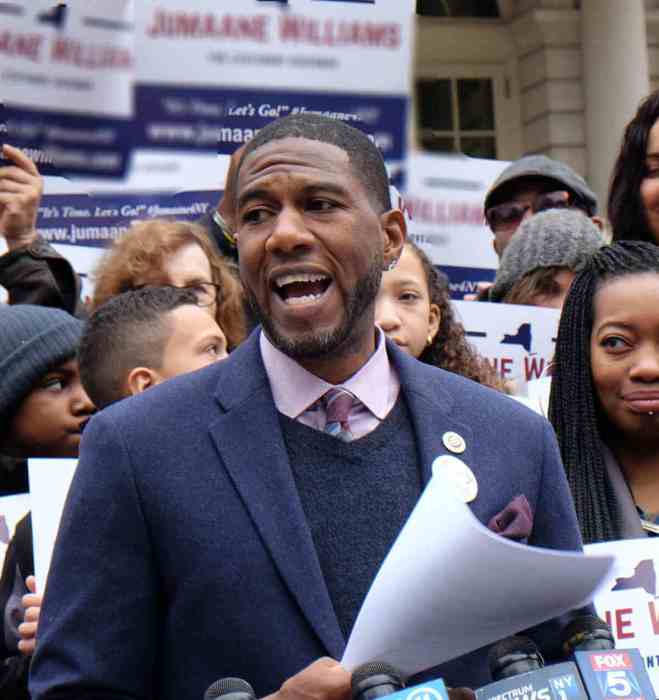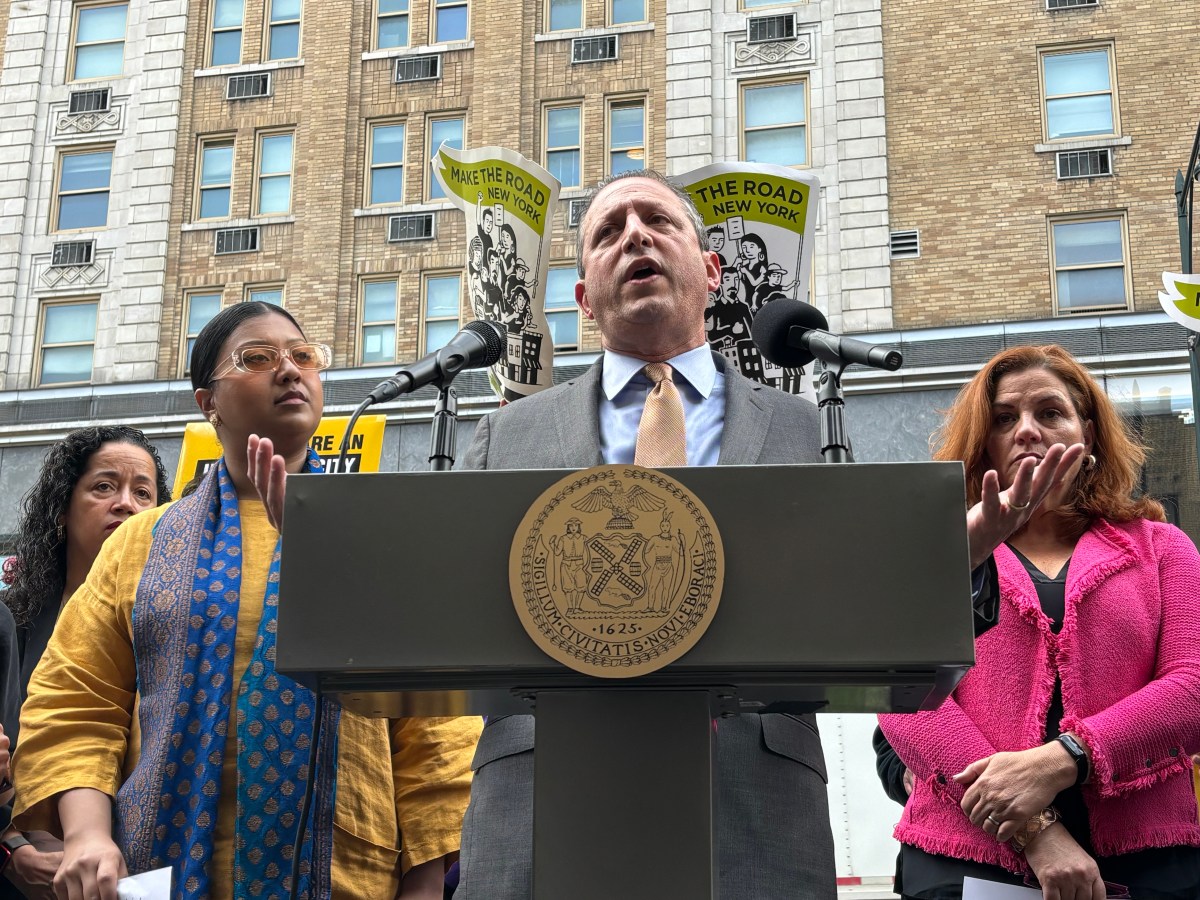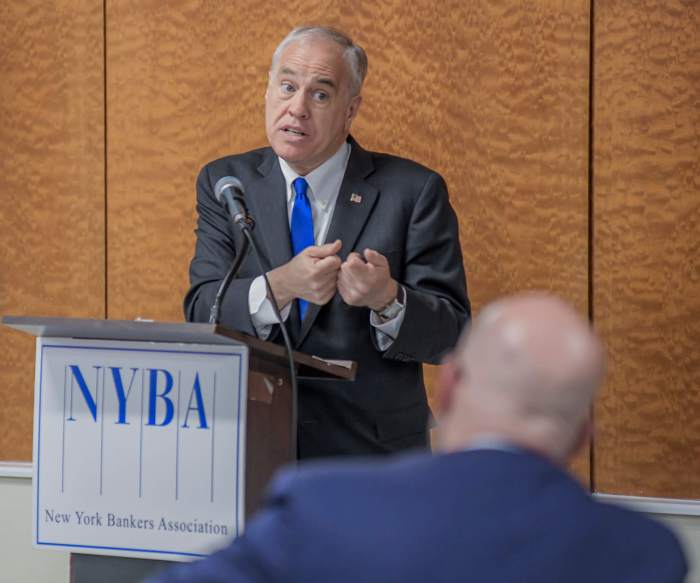Brooklyn Assembly Member Rodneyse Bichotte has joined members of the minority and women-owned business enterprise (MWBE) community in expressing disappointment with Gov. Andrew Cuomo for vetoing the only MWBE bill sponsored by both Democrats and Republicans ever of its kind.
A2819 Bichotte/S3018 Ritchie) would have eliminated a cap on the personal net worth for certification for MWBEs and would have allowed small businesses to remain competitive.
‘“Governor Cuomo’s decision to veto a bipartisan bill that would have leveled the playing field for minority and women-owned businesses is deeply discouraging,” said Bichotte, chair of the Subcommittee on the Oversight of Minority and Women-Owned Business Enterprises (MWBE) and the sponsor of the bill.
“Assembly-Senate bill number A2819/S3018 would have made it easier for minority and women business owners to compete with larger contractors and continue to thrive,” added the representative for the 42nd Assembly District in Brooklyn. “The governor’s veto is especially troubling given that much of the statistical data, including the data provided by Mason Tillman, who was hired by the State to conduct the 2016 Disparity Study, has noted that adding a personal net worth cap requirement has been shown to impede many MWBEs’ ability to access capital and bonds.
“This is especially true with small businesses in the construction and financial sectors,” she continued. “In turn, this lack of access to capital leaves many MWBEs in a space where they are found too small to win contracts or too large to remain certified.”
Bichotte said New York City, which has a robust MWBE procurement program with billions of dollars of government contracting opportunities, does not have a personal net worth cap or any type of threshold.
Of the 27 states with MWBE programs, she said New York State is one of only two in the country that also underwent the highest scrutiny standard; that is, a disparity study that has included a personal net worth cap in its statute.
All other state programs, including most cities that have MWBE programs, find the personal net worth more damaging to MWBEs and redundant according to the Supreme Court Ruling Richmond vs. Croson, Bichotte said.
Additionally, having a personal net worth cap does not allow those small businesses with capacity to participate in the program, she said.
“Thus, one can view this as putting the program at risk of being sued since prime contractors complain that there are a lack of MWBEs participating in the program with the proper capacity, even with a 54 percent MWBE availability, the Assembly Member said.
She said the governor offered to eliminate the personal net worth through a proposed chapter amendment, only if his staff, via internal policies and regulations, had control of who received a cap or not.
The chapter amendment also enabled his staff to increase or lower the cap based on the industry, she said.
Bichotte said that the subjectivity of the selection process and the decision on arbitrary numbers to be used as a cap threshold would put the integrity of the program at risk and would open the door for potential “pay to play” type of dealings.
Furthermore, she said legislators were elected to implement laws that would enforce the protection of people’s rights under any administration.
Bichotte disagrees with the premise that one person and or a department should be making these types of decisions that will differ from one business to another, “especially with a governor whose ambition exceeds being the executive of a state capitol.”
“We have seen evidence of what happens when governing from a position of strength and enacting laws versus from a weakened position with just internal policies that can be easily eradicated,” said Bichotte. “Case in point is the manner in which the Trump Administration is erasing progressive regulations, authored under the Obama Administration.”
“We want to secure the rights and equal protection of the minority and women business owners guaranteed under the 14th amendment, regardless of the administration,” she said. “If we are going to pass this law, let’s do it the right way and truly protect the underserved and disadvantaged group of business owners, namely MWBEs.”
Supporters of the bill noted that its passage would also have made it easier for the state to meet its 30 percent participation goal from MWBEs for state contracts, according to Bichotte.
She said, even when presented with over 650 signatures supporting the elimination of the personal net worth cap, Cuomo chose to ignore the potential to level the playing field for minority and women business owners.



















